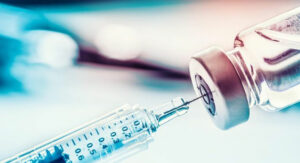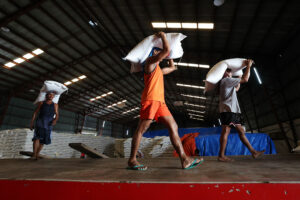THE PHILIPPINE National AIDS Council (PNAC) and AIDS Healthcare Foundation (AHF) Philippines on Thursday said the procurement of the vaccine lenacapavir is underway following the rapid spike of human immunodeficiency virus (HIV) cases in the country.
“Just an update on the lenacapavir — under the Global Fund project, which we still have, we will procure and start FDA (Food and Drug Administration) approval for this year,” AHF Philippines Program Officer Neoman Roxas said during a forum on the national HIV emergency.
“So, hopefully next year we will already have supplies to test here in the Philippines,” he added.
Mr. Roxas said the procurement is part of the three-year Global Fund project for the Philippines, which is set to end next year. The project includes operational and financial support for programs for HIV and acquired immunodeficiency syndrome (AIDS), tuberculosis, and malaria.
The Council and the Department of Health (DoH) are also planning to push for higher funding in 2026 to fund the procurement and support other initiatives to address the country’s growing HIV problem, PNAC Executive Director Joselito R. Feliciano said.
“The medicine we have now is being taken orally by patients. They take it daily. Lenacapavir, it’s more of an injection and will require them to return only every six months,” Mr. Feliciano said in mixed English and Filipino. “The problem is it’s very expensive. But the results from the studies are very promising.”
Lenacapavir is a preventive shot for HIV administered twice a year. It costs $40 or at least P2,000 per person, significantly lower than the $28,218 reported last year, according to a recent study cited by the Joint United Nations Programme on HIV/AIDS.
The World Health Organization said the Philippines has the fastest-growing number of HIV cases in the Asia-Pacific region.
In the first quarter of 2025, a total of 5,101 Filipinos, or at least 57 individuals every day, were identified as HIV-positive, data from the DoH showed. This is 49.6% higher than the 3,409 cases logged in the same period last year.
A third of the total patients are between the ages of 15 to 24, with the majority, or 95%, being men.
DoH also reported that the number of HIV cases in 2024 spiked by 550% to 29,600 from 4,400 in 2010.
The health agency estimated that around 252,800 Filipinos would be living with HIV this year.
Last month, Health Secretary Teodoro J. Herbosa said in a statement that addressing this issue demands a multifaceted approach, involving enacting new laws, boosting government funding, and launching an “aggressive” information campaign through the media.
MARCOS, CONGRESS AIDAmid this, Mr. Feliciano said they have been coordinating with President Ferdinand R. Marcos, Jr. regarding an executive order (EO) that would declare a public health emergency on HIV.
“The request for an EO is for an intensified HIV awareness policy,” he said.
“One of these is regarding condoms — we don’t want to distribute condoms one by one to every youth. What we want is for Filipinos to have access and power to decide for themselves whether to use condoms or not,” he added.
Mr. Feliciano noted that access should mean condoms are readily available “in motels, red district areas, and even in spas, where we know sexual things occur.”
He said that they are pushing for an EO to encourage local governments and National Government agencies to invest and allocate funds for HIV programs, in compliance with Republic Act No. 11166.
RA 11166, the HIV and AIDS Policy Act, promotes prevention, treatment, care, and support for people living with HIV and AIDS through a multi-sectoral approach, ensuring access to services while protecting patients from discrimination.
However, Mr. Feliciano said the law has unclear guidelines regarding treatment, which he said they have raised to Congress as part of their legislative agenda.
HIV is a viral disease that can spread via unprotected sex, oral sex, shared needles, blood transfusion, or from a mother to her child during pregnancy, birth, or breastfeeding.
It weakens a person’s immune system by attacking the cells that help the body fight infection. — Katherine K. Chan






